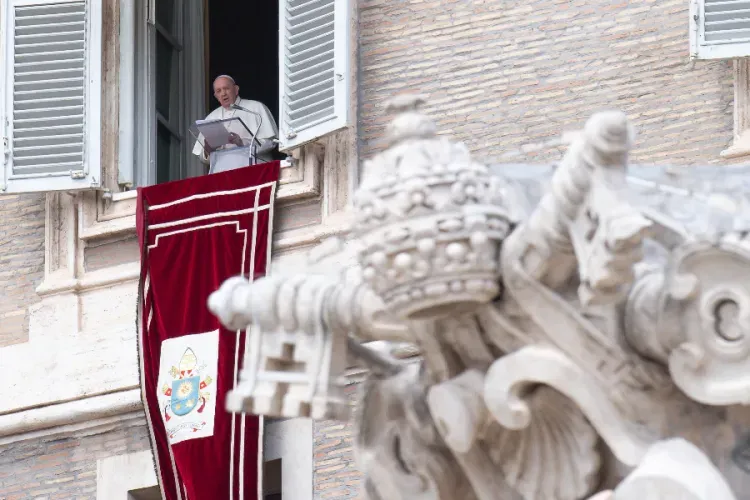“We are not a ‘mass,’ a ‘multitude,’ for Him, no. We are unique individuals, each with his or her own story, he knows us with our own story, each with his or her own value, both because they have been created and have been redeemed by Christ,” he said.
Above all, he commented, Jesus the Good Shepherd loves his flock.
“Christ’s love is not selective; it embraces everyone,” he said. “He Himself reminds us of this in today’s Gospel when he says: ‘And I have other sheep, that are not of this fold; I must bring them also, and they will heed my voice. So there shall be one flock, one shepherd’ (John 10:16).”
“These words testify to his universal concern: He is everyone’s shepherd. Jesus wants everyone to be able to receive the Father’s love and encounter God.”
He said that the Church was called to continue Christ’s mission.
(Story continues below)
“Beyond those who participate in our communities, there is the majority, many people, who do so only at particular moments or never. But this does not mean they are not God’s children: the Father entrusts everyone to Jesus the Good Shepherd, and he gave his life for everyone,” he said.
After leading the Regina Caeli prayer, the pope said that on April 23 three priests and seven lay people were beatified in Santa Cruz del Quiché, Guatemala.
He recalled that the Spanish priest José Maria Gran Cirera and his nine companions, who belonged to the Missionaries of the Sacred Heart, were killed between 1980 and 1991. He highlighted their defense of the poor at a time when the Catholic Church faced persecution.
“With lively faith in Christ, they were heroic witnesses of justice and love. May their example make us more generous and courageous in living the Gospel,” he said, asking for a round of applause in honor of them.
The pope expressed his closeness to the people of St. Vincent and the Grenadines in the southern Caribbean following volcanic eruptions.
“I assure you of my prayers. I bless all those who are participating in relief efforts and assistance,” he said.
He also stressed his nearness to victims of a fire at a hospital for coronavirus patients in Baghdad, a city he visited during his March trip to Iraq.
“As of now, there are 82 people who have died,” he said. “Let us pray for all of them.”
Finally, he greeted the people of Rome and pilgrims.
“In particular, I greet the families and friends of the newly ordained priests, as well as the community of the Pontifical German-Hungarian College who performed the traditional pilgrimage of the seven churches today,” he said.








